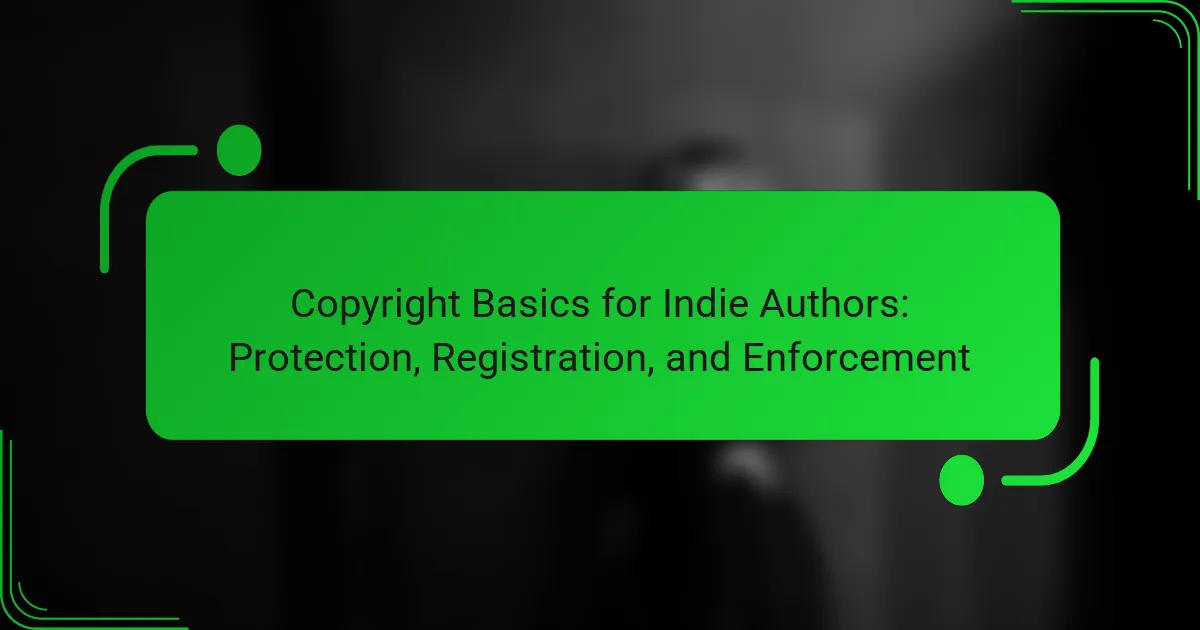Navigating the publishing landscape can be challenging for authors. Literary agents serve as vital intermediaries, offering industry connections and negotiation expertise. They help refine manuscripts and enhance visibility. Understanding their roles, benefits, and effective approaches is essential for authors seeking successful representation.

What are the key roles of literary agents?
Literary agents play crucial roles in the publishing industry, primarily acting as intermediaries between authors and publishers. They provide guidance on manuscript development, negotiate contracts, and help authors navigate the complexities of the publishing process.
Additionally, literary agents have industry connections that can enhance an author’s visibility and marketability. They often assist with marketing strategies and may provide insights into trends within the literary market. Their expertise can significantly increase an author’s chances of success in securing a publishing deal.
Overall, a literary agent’s role is essential for authors seeking to publish their work effectively and professionally.
How do literary agents support authors in the publishing process?
Literary agents play a crucial role in supporting authors throughout the publishing process. They provide industry expertise, negotiate contracts, and help shape manuscripts to meet market demands.
Agents offer valuable connections to publishers, increasing an author’s chances of getting published. They also provide feedback on manuscripts, guiding authors in revisions to enhance appeal.
In addition, literary agents often assist with marketing strategies post-publication, ensuring that authors reach their target audience effectively. This comprehensive support system is vital for authors navigating the complexities of the publishing landscape.
What negotiation skills do literary agents possess?
Literary agents possess negotiation skills that include effective communication, persuasive techniques, and conflict resolution. These skills enable them to advocate for authors, secure favorable contract terms, and navigate complex publishing landscapes. Strong relationship management is also crucial, as it fosters trust and collaboration with both authors and publishers.
How do literary agents build relationships with publishers?
Literary agents build relationships with publishers through consistent communication and mutual trust. They regularly share manuscripts that align with a publisher’s interests, ensuring a strong fit. Agents also attend industry events to network, fostering personal connections that enhance collaboration. By understanding market trends, agents position their authors effectively, increasing the likelihood of successful partnerships.
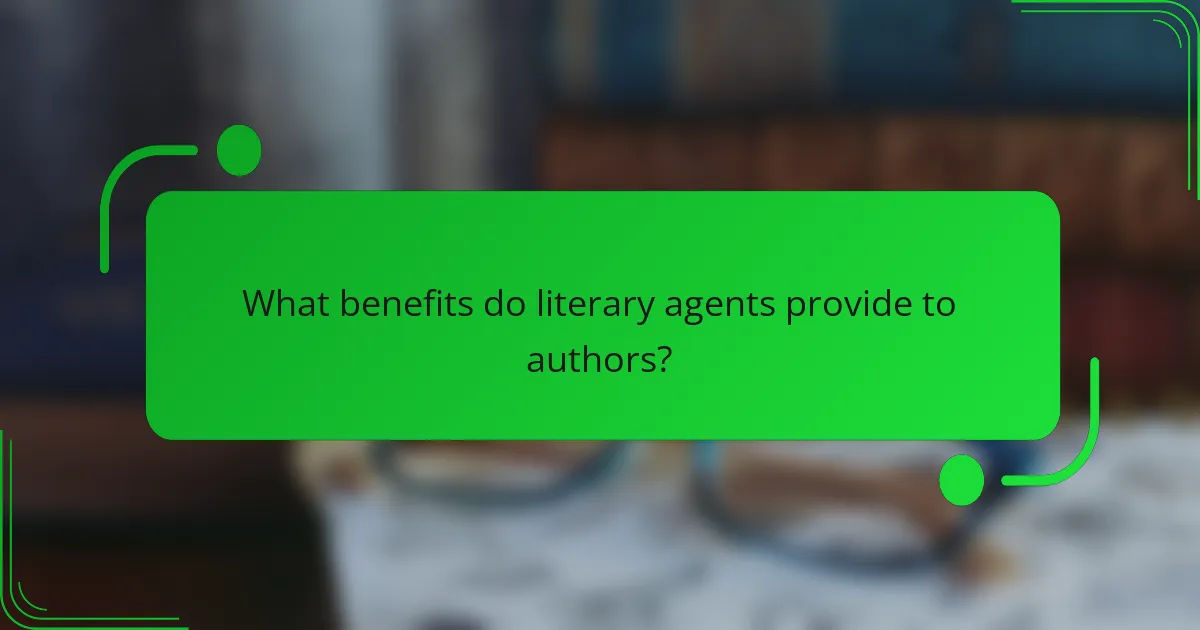
What benefits do literary agents provide to authors?
Literary agents provide authors with essential support, including industry connections, negotiation expertise, and marketing strategies. They enhance an author’s visibility and access to publishers, ensuring better contract terms and broader distribution. Agents also offer valuable feedback on manuscripts, helping authors refine their work for the market.
How do literary agents enhance an author’s market reach?
Literary agents enhance an author’s market reach by leveraging industry connections and expertise. They provide access to publishers, negotiate contracts, and promote works effectively. Agents also offer valuable feedback on manuscripts, improving quality and marketability. Their established networks facilitate opportunities for book tours, media appearances, and collaborations, significantly expanding an author’s visibility.
What financial advantages do literary agents offer?
Literary agents provide financial advantages by securing higher advances and royalties for authors. They negotiate better publishing contracts, leveraging industry connections to maximize earnings. Agents also help authors avoid pitfalls, ensuring fair compensation and protecting intellectual property rights. This expertise can lead to increased long-term revenue through strategic career management.
How do literary agents assist in manuscript development?
Literary agents play a crucial role in manuscript development by providing guidance, feedback, and industry insights. They help authors refine their work to meet market standards and connect with publishers. Agents offer critical advice on structure, pacing, and character development, enhancing the manuscript’s overall quality. Their expertise can lead to a stronger proposal, increasing the chances of publication success.
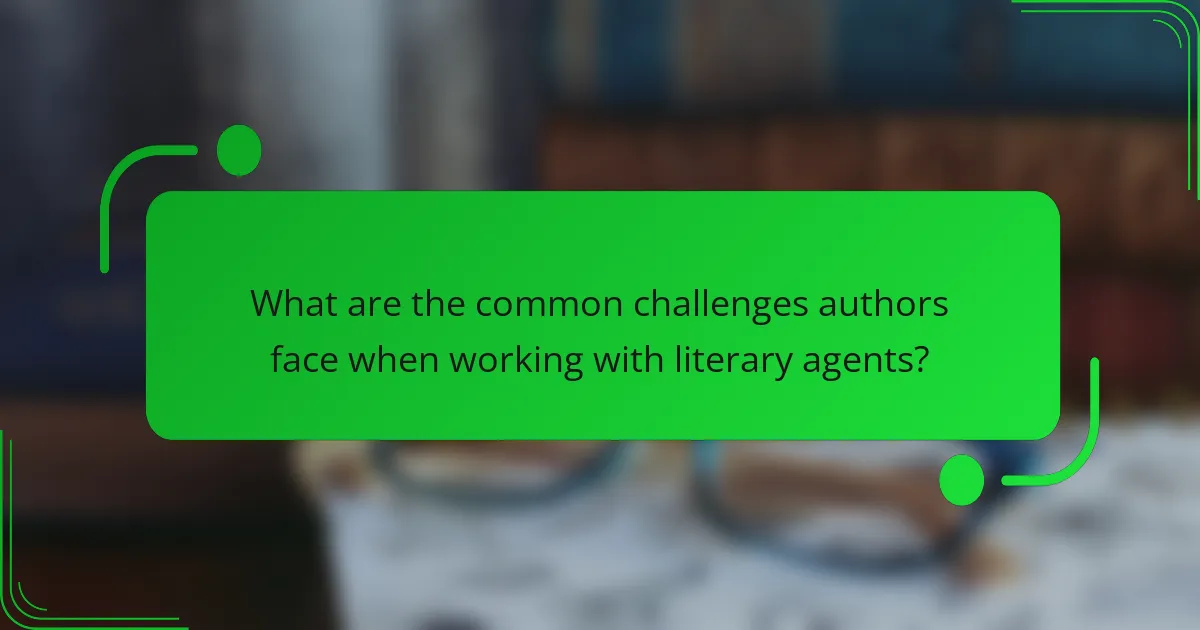
What are the common challenges authors face when working with literary agents?
Authors commonly face challenges such as miscommunication, unrealistic expectations, and limited creative control when working with literary agents. Miscommunication can arise from differing interpretations of feedback or goals. Unrealistic expectations may include agents demanding rapid revisions or specific marketability that may not align with an author’s vision. Limited creative control often leads to frustration, as agents may push for changes that compromise an author’s original intent. These challenges can hinder the collaborative process essential for successful representation.
How do authors identify the right literary agent for their work?
Authors can identify the right literary agent by researching agents who represent their genre and reviewing their submission guidelines. Start by analyzing the agent’s track record and client list, ensuring alignment with your work. Utilize resources like literary agent directories and industry websites to gather information. Networking at writing events can also provide valuable connections and insights into agents’ preferences.
What expectations should authors have from their literary agents?
Authors should expect literary agents to provide representation, industry insights, and negotiation support. A literary agent acts as a bridge between authors and publishers, helping to secure deals that align with the author’s goals. Agents should also offer feedback on manuscripts, ensuring they meet market standards. Additionally, authors can expect agents to advocate for their interests throughout the publishing process, from contract negotiations to marketing strategies. Ultimately, a strong partnership with a literary agent can significantly enhance an author’s career trajectory.
How can miscommunication with literary agents be avoided?
Clear communication with literary agents can be achieved by setting expectations and maintaining open dialogue. Begin by researching agents to understand their preferences and submission guidelines. Tailor your queries to reflect their interests, which fosters a positive connection.
Regular updates on your manuscript’s progress can prevent misunderstandings. Be concise and clear in all communications, ensuring that your questions are specific. If feedback is received, respond thoughtfully, demonstrating your willingness to collaborate.
Lastly, consider using a professional tone and format in your correspondence, which enhances clarity and professionalism. These strategies collectively minimize the risk of miscommunication, ensuring a smoother relationship with literary agents.
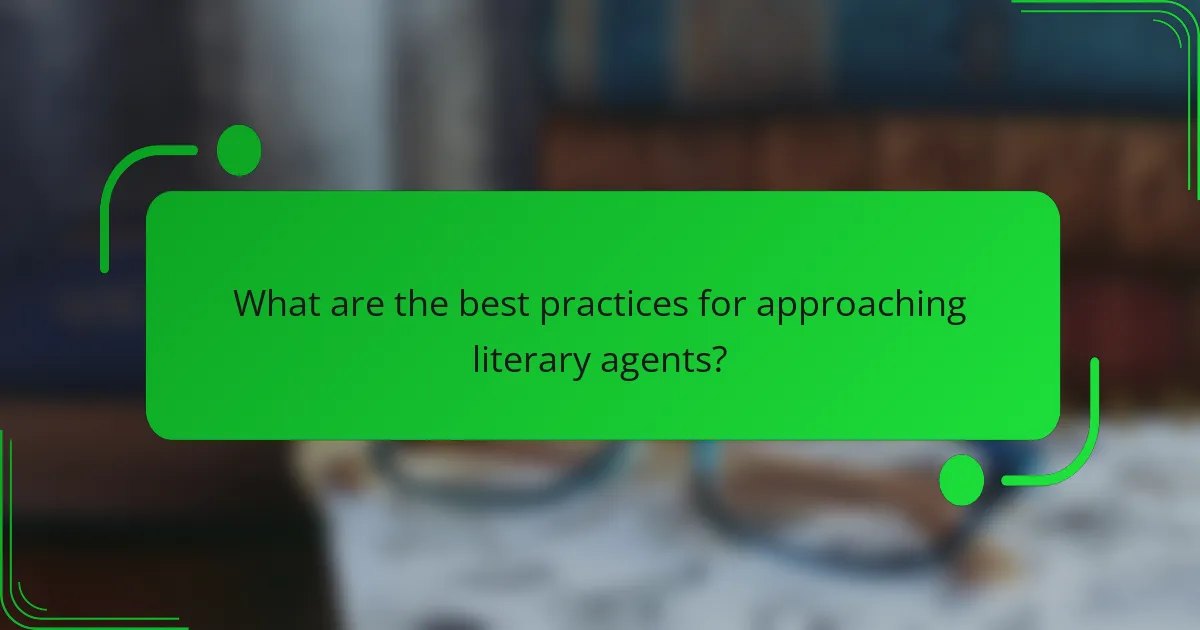
What are the best practices for approaching literary agents?
To approach literary agents effectively, focus on professionalism, personalization, and persistence. Research agents to find those who represent your genre and understand their submission guidelines. Tailor your query letter to each agent, highlighting your unique attributes and the value of your manuscript. Follow up politely if you don’t receive a response within their specified timeframe.
How should authors prepare their submission materials?
Authors should prepare their submission materials by ensuring they are polished and tailored to the specific literary agent. Key components include a compelling query letter, a well-structured synopsis, and sample chapters formatted according to industry standards.
1. Craft a concise query letter that introduces the manuscript and highlights its unique attributes.
2. Prepare a detailed synopsis that summarizes the plot, character arcs, and themes, ensuring it captures the essence of the story.
3. Include sample chapters that showcase the writing style, voice, and pacing, typically the first three chapters or the first 50 pages.
4. Follow submission guidelines provided by the literary agent, including formatting, length, and additional materials required.
These steps enhance the likelihood of capturing an agent’s interest and effectively communicating the manuscript’s value.
What role does networking play in finding a literary agent?
Networking plays a crucial role in finding a literary agent by creating connections that can lead to opportunities. Engaging with industry professionals, attending literary events, and participating in writing communities can enhance visibility and credibility. Recommendations from established authors or peers can significantly increase the chances of being noticed by agents. Additionally, networking allows aspiring writers to gain insights into agent preferences and submission processes, making their approach more effective. Building relationships within the literary community fosters trust, which is essential when seeking representation.
How can authors effectively follow up with literary agents?
Authors can effectively follow up with literary agents by sending a polite and concise email. A good follow-up should occur about four to six weeks after the initial submission. In the email, authors should express gratitude for the agent’s time, briefly inquire about the status of their manuscript, and reaffirm their interest in representation. This approach maintains professionalism and demonstrates persistence without being intrusive.

Which unique attributes differentiate successful literary agents?
Successful literary agents are distinguished by their unique attributes, including strong industry connections, specialized knowledge in specific genres, and exceptional negotiation skills. These traits enable them to effectively advocate for authors and secure lucrative publishing deals. Additionally, a keen understanding of market trends and reader preferences sets successful agents apart, allowing them to provide valuable guidance to their clients.
How does a literary agent’s specialization impact their effectiveness?
A literary agent’s specialization significantly enhances their effectiveness in representing authors. Agents who focus on specific genres possess deeper knowledge of market trends, reader preferences, and industry standards. This expertise allows them to tailor submissions to publishers more effectively, increasing the chances of securing deals. Additionally, specialized agents often have established relationships with editors, which can facilitate smoother negotiations. Their understanding of unique attributes within a genre enables them to provide targeted feedback, helping authors refine their work for maximum impact.
What personal traits contribute to a literary agent’s success?
Successful literary agents possess traits such as strong communication skills, keen negotiation abilities, and a deep understanding of market trends. They also demonstrate persistence, adaptability, and a passion for literature. These attributes enable them to effectively represent authors and navigate the publishing landscape.
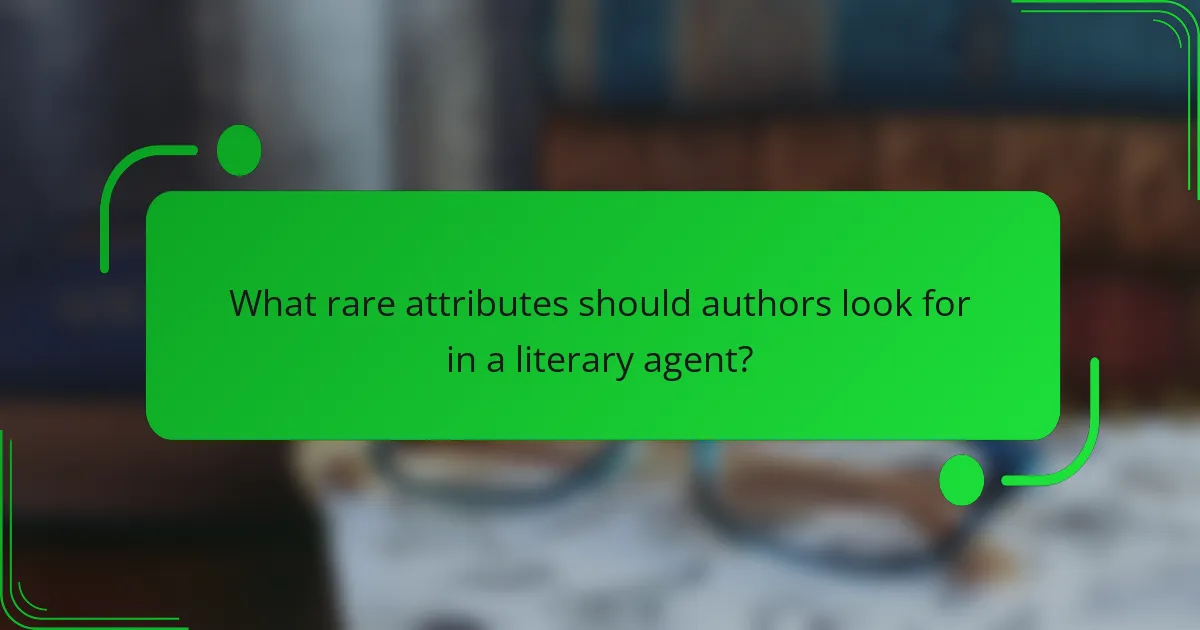
What rare attributes should authors look for in a literary agent?
Authors should seek literary agents with rare attributes such as niche market expertise, strong industry connections, and a proven track record in specific genres. These qualities can significantly enhance an author’s visibility and success. Additionally, agents who prioritize personalized communication and exhibit a genuine passion for the author’s work can provide unique advantages.
How can a literary agent’s industry connections benefit an author?
A literary agent’s industry connections can significantly enhance an author’s opportunities. Agents often have established relationships with publishers, editors, and other industry professionals, facilitating introductions that can lead to book deals and promotions. These connections can also provide insights into market trends, helping authors tailor their work to meet demand. Additionally, agents can advocate for their clients, leveraging their network to secure favorable contract terms and marketing support.
What unique services do niche literary agents offer?
Niche literary agents offer specialized services tailored to specific genres or markets. These agents often have deep connections within their niche, providing targeted submissions and strategic advice. They may also offer unique insights into market trends, helping authors refine their pitches and manuscripts. Additionally, niche agents often provide personalized marketing strategies, enhancing an author’s visibility in their specific literary field.
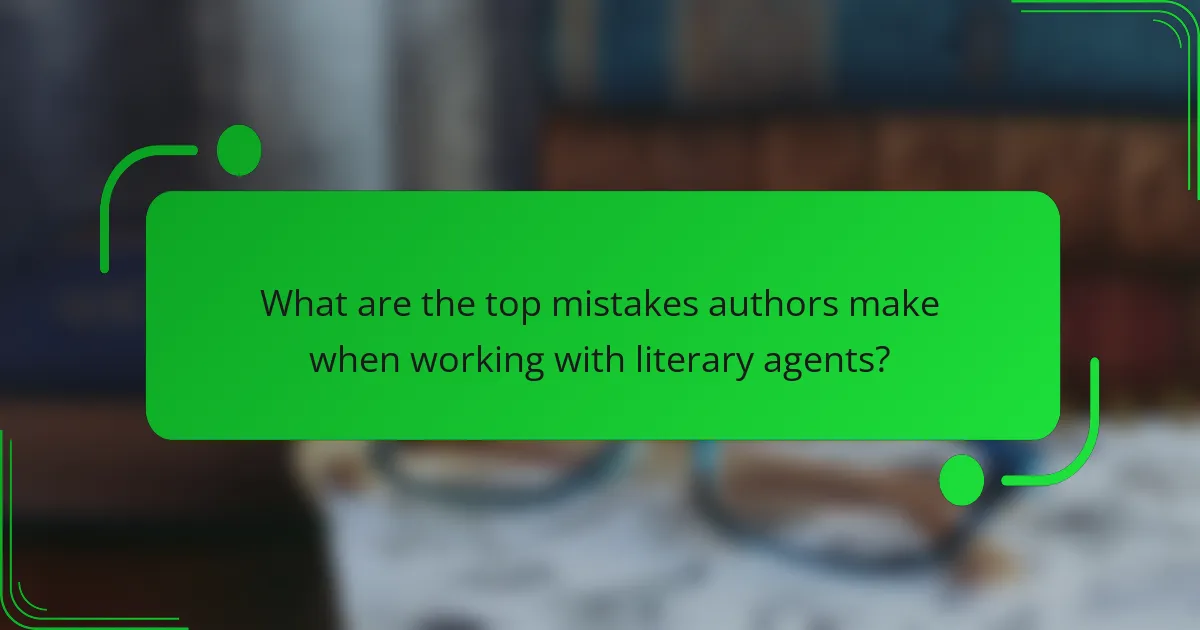
What are the top mistakes authors make when working with literary agents?
Authors often make key mistakes when working with literary agents, including lack of research, unrealistic expectations, poor communication, and failure to follow submission guidelines.
Not researching a literary agent can lead to mismatched genres and wasted time. Unrealistic expectations regarding timelines and responses can create frustration. Poor communication, such as not being professional or clear, can hinder relationships. Lastly, ignoring submission guidelines can result in immediate rejection.
How can authors ensure they are making informed decisions?
Authors can ensure informed decisions by researching literary agents thoroughly. Start by identifying agents who represent your genre and reviewing their submission guidelines. Evaluate their track record, including successful sales and client testimonials. Attend literary events to network and gain insights. Consider seeking recommendations from other authors. Lastly, trust your instincts during the selection process.
What strategies can authors use to maintain a positive relationship with their literary agents?
Authors can maintain a positive relationship with their literary agents by communicating openly and respecting their expertise. Regular updates on progress and responsiveness to feedback foster trust. Setting clear expectations regarding deadlines and goals aligns both parties. Additionally, acknowledging the agent’s efforts and celebrating successes together strengthens the partnership. Engaging in professional development opportunities together can also enhance mutual growth.

